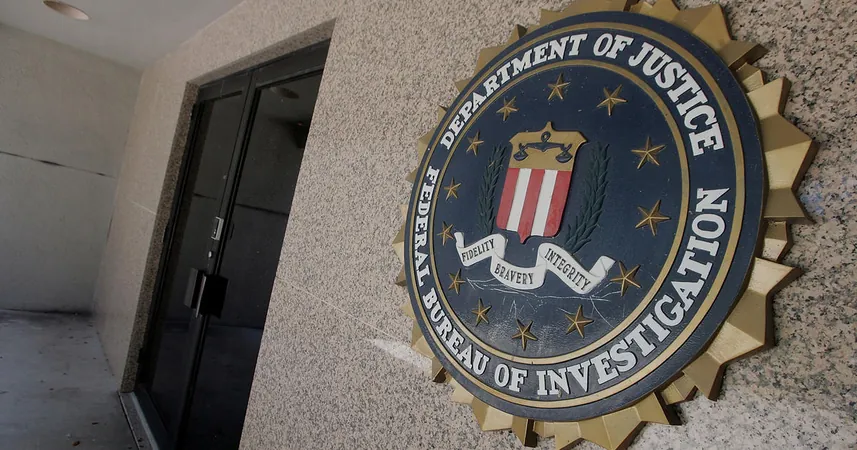
U.S. Targets Tajik Nationals with Alleged ISIS Connections: What This Means for National Security
2024-10-06
U.S. Targets Tajik Nationals with Alleged ISIS Connections
In a decisive move underscoring heightened national security concerns, U.S. immigration officials arrested eight Tajik nationals linked to the Islamic State (ISIS) during coordinated raids across Los Angeles, New York, and Philadelphia in June. These operations were deemed necessary to disrupt potential terrorist activities early on. Fast forward to now, and three of these detainees have already been flown back to Tajikistan and Russia, with four more set for removal in the upcoming weeks. Only one remains detained, pending a legal proceeding related to a medical issue.
Importantly, none of the arrested individuals face additional terrorism charges. U.S. officials opted for immediate deportation over lengthy terrorism trials, driven by urgent public safety considerations amid rising threats. Following their entry into the U.S., the FBI swiftly identified these nationals' potential links to ISIS through intelligence-gathering methods, including wiretaps, further emphasizing the government's proactive stance against potential threats.
A Shift in Immigration Court Protocols
This incident marks a pivotal shift in how U.S. immigration courts handle cases involving foreign nationals with terrorism connections. Recent initiatives led by the Department of Homeland Security, alongside the Intelligence Community, are aimed at enhancing the sharing of classified information with immigration judges. This new protocol is designed to allow for better-informed decisions in immigration cases, especially concerning individuals from regions where terrorism is prevalent.
Geopolitical Tensions and Domestic Security Threats
The context around this issue has escalated dramatically. Following the recent attacks on Israel by Hamas, national security agencies have been on high alert, especially with potential terrorism hotspots emerging in Central Asia. A joint intelligence bulletin has warned that foreign terrorist organizations may exploit recent geopolitical tensions to recruit radicalized individuals, thereby increasing the risk of domestic terrorism.
Wider Crackdown on Central Asian Nationals
The nationwide crackdown isn't limited to Tajik nationals. Earlier this year, ICE arrested an Uzbek citizen in Baltimore with alleged ISIS ties after he had lived in the U.S. for more than two years. Moreover, individuals from Central Asia, especially Tajiks, have been implicated in serious terrorism incidents both within and outside Russia, corroborating ongoing fears about their potential influence in the U.S.
Proactive Measures by ICE
In response to these threats, ICE is continuously vetting incoming foreign nationals from conflict-ridden regions, including Tajikistan and Uzbekistan, as part of a proactive approach to safeguard the nation. Statistics bolster this concern, while the numerical flagging of migrants by the FBI's watchlist remains minuscule—only 0.007%. Still, with increasing numbers of migrants crossing the U.S.-Mexico border from conflict zones, officials are working tirelessly to expedite removals of those viewed as security threats.
Challenges at the U.S. Borders
The current wave of migrants presents a broader, more complex challenge. No longer limited to those from the Western Hemisphere, U.S. border personnel now encounter a greater diversity of individuals from all across the globe, particularly from areas known for terrorism ties. The government is grappling with how best to handle this new landscape, which includes refining procedures to ensure the safety of the American public.
FBI Concerns and Human Smuggling Risks
FBI Director Christopher Wray emphasized the importance of vigilance, noting that human smuggling operations at the southern border pose significant risks due to the potential trafficking of individuals with ties to extremist groups. "Today, I would be hard-pressed to recall a time when multiple threats to public safety and national security have converged so dramatically," Wray stated, highlighting the urgency of the situation shortly before the arrests were made.
Complexities of Repatriation
As for the expedited repatriation of the Tajik nationals, this required sensitive and extensive diplomatic negotiations with the State Department, underscoring the challenges faced when returning individuals to Central Asia. In 2023, only four migrants were deported to Tajikistan, illustrating the operational hurdles and complexities inherent in such removals.
The Broader National Security Question
The ongoing discourse surrounding national security and immigration underscores a crucial question: with emerging threats and the intricate web of global migration, how effectively can the U.S. safeguard its borders while addressing the humanitarian aspects of migration? As complexities deepen, vigilance and coordination are more critical than ever in ensuring citizen safety.



 Brasil (PT)
Brasil (PT)
 Canada (EN)
Canada (EN)
 Chile (ES)
Chile (ES)
 España (ES)
España (ES)
 France (FR)
France (FR)
 Hong Kong (EN)
Hong Kong (EN)
 Italia (IT)
Italia (IT)
 日本 (JA)
日本 (JA)
 Magyarország (HU)
Magyarország (HU)
 Norge (NO)
Norge (NO)
 Polska (PL)
Polska (PL)
 Schweiz (DE)
Schweiz (DE)
 Singapore (EN)
Singapore (EN)
 Sverige (SV)
Sverige (SV)
 Suomi (FI)
Suomi (FI)
 Türkiye (TR)
Türkiye (TR)